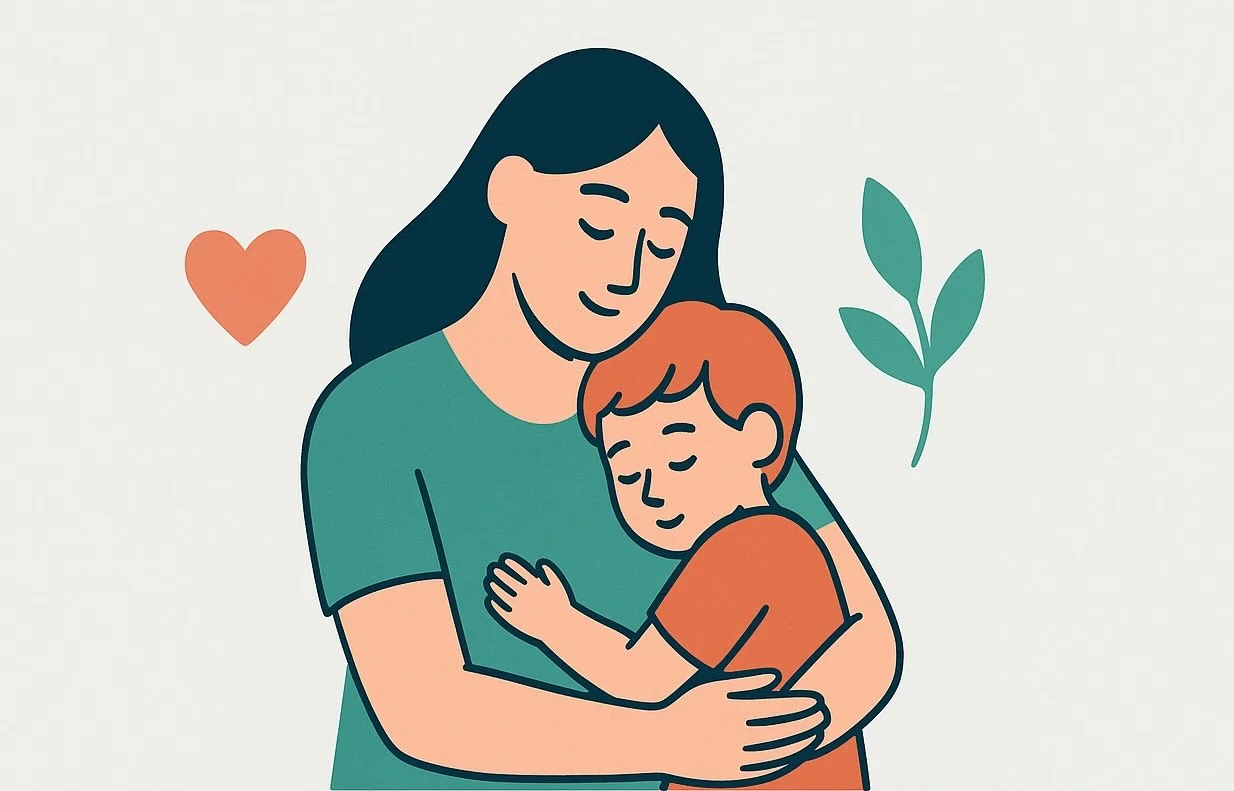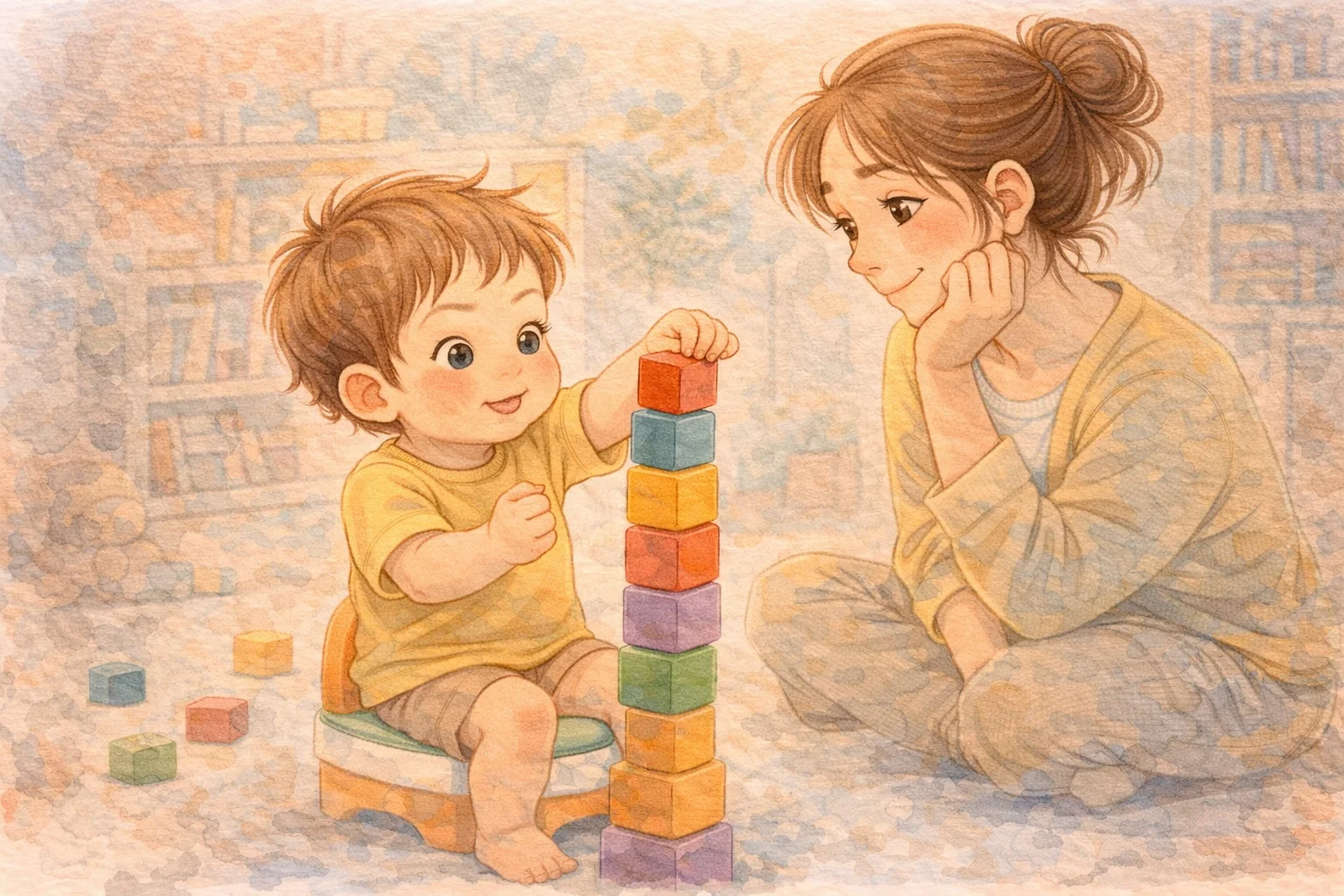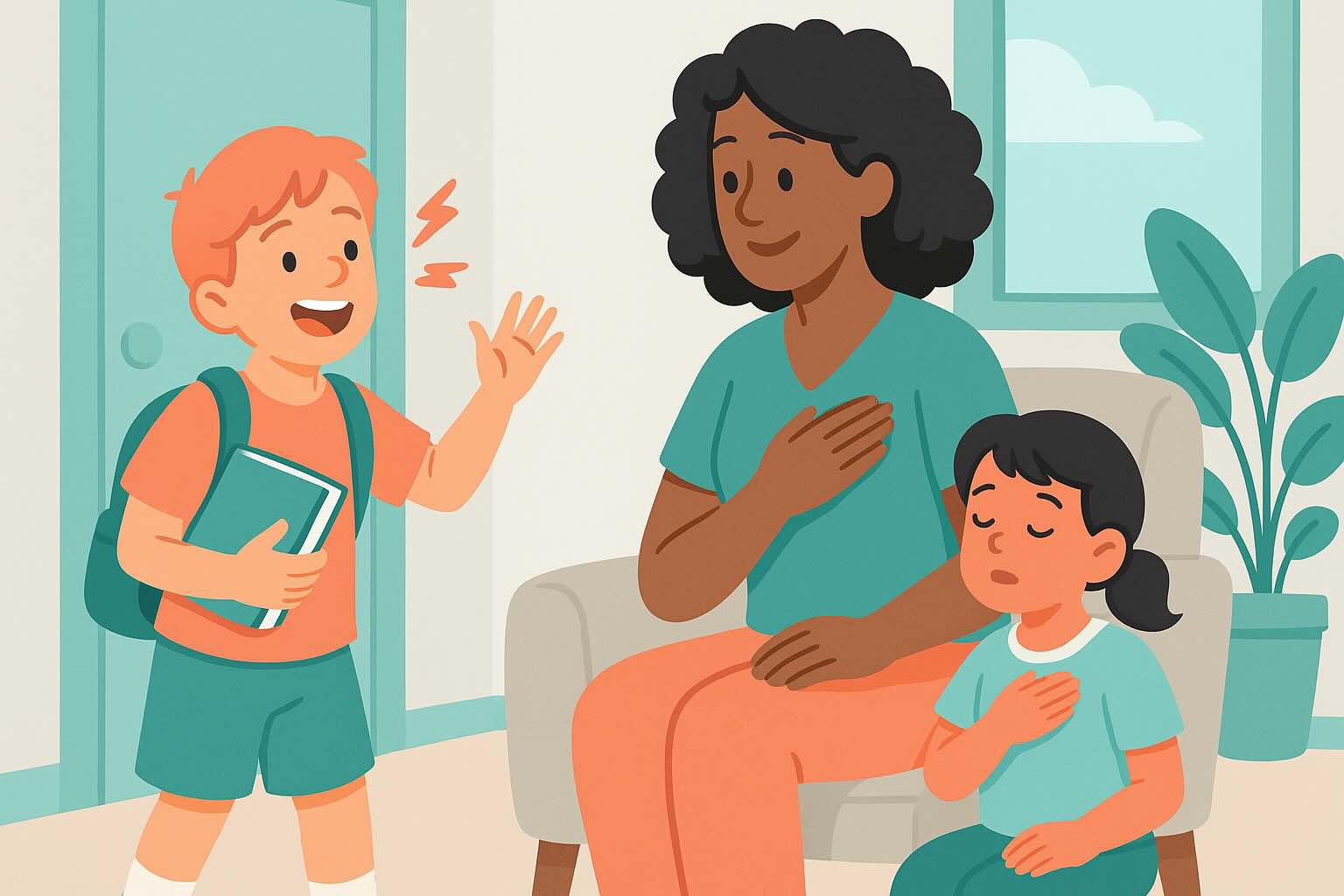5 Year Old Milestones: Complete Development Guide for Parents
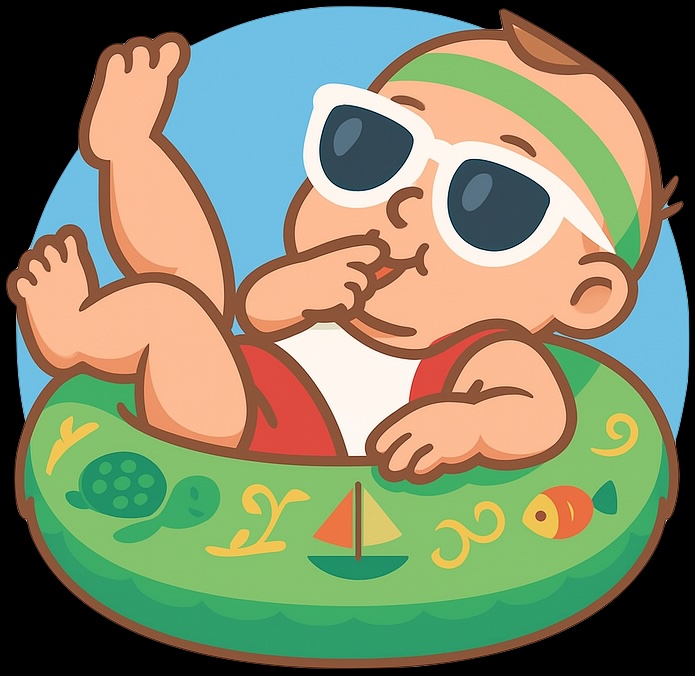
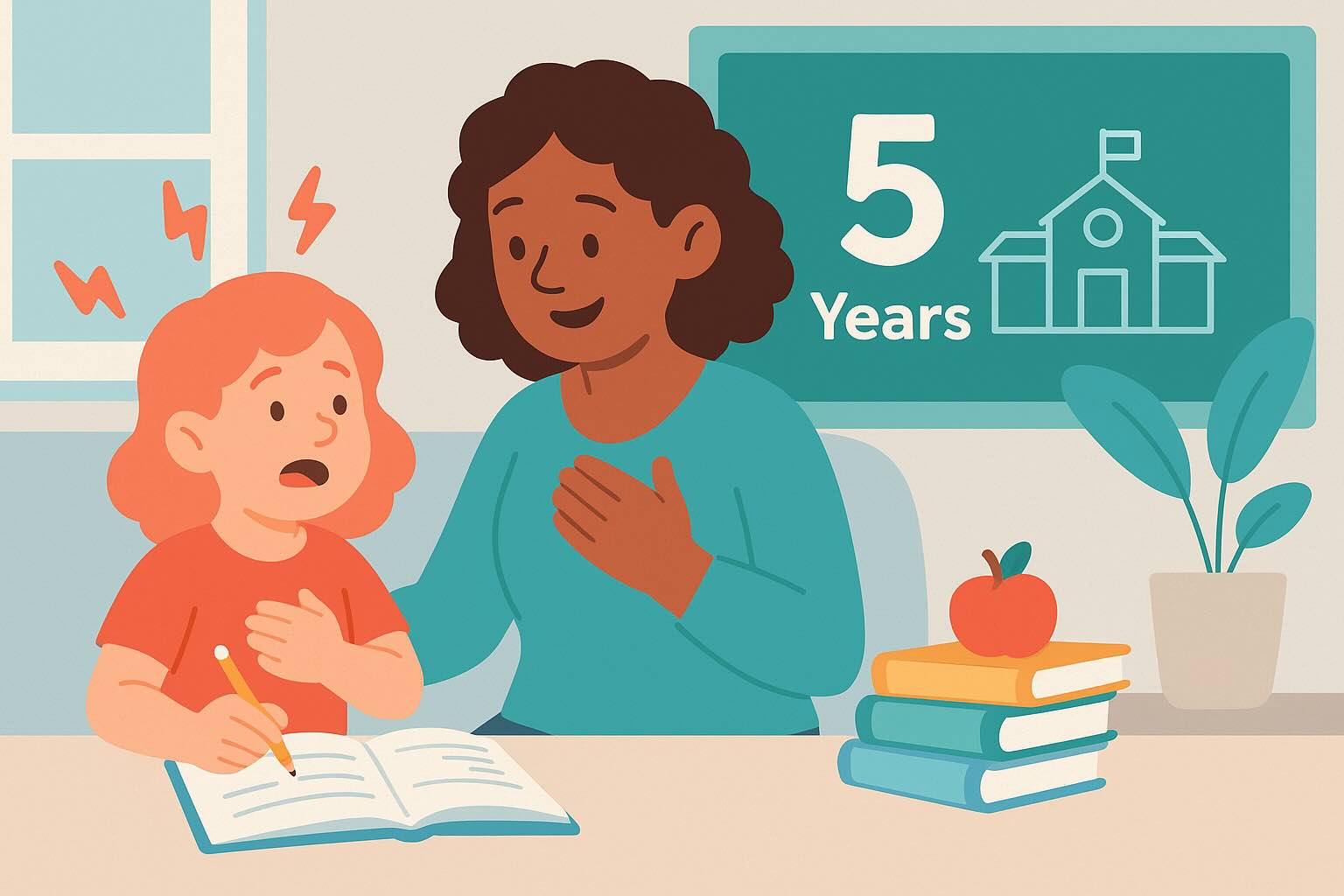
Welcome to the exciting world of five-year-olds! Your child is standing at the threshold of a major life transition—kindergarten—and their developmental achievements this year will lay the foundation for academic success. Understanding typical milestones helps you recognize your child's progress and identify areas where they might benefit from extra support.
The Five-Year-Old Milestone Moment
Five represents a pivotal age in child development. According to the CDC's updated guidelines, this is when children typically demonstrate the school readiness skills that will serve them throughout their educational journey. Your 5-year-old is developing the attention span, social skills, and emotional regulation needed for structured learning environments.
This year brings remarkable growth in independence, creativity, and social awareness. Your child is moving from parallel play to truly cooperative play, from simple sentences to storytelling, and from basic movements to complex physical coordination. They're ready to take on more responsibility and show genuine concern for others' feelings.
Physical Development Milestones
Gross Motor Skills
Five-year-olds display impressive physical coordination and strength. Most children this age can:
Advanced Movement Skills:
- Skip with alternating feet smoothly
- Hop on one foot for 8-10 hops
- Walk backwards easily
- Climb stairs while carrying objects
- Ride a bicycle with training wheels
- Throw and catch a ball with accuracy
- Jump rope (beginning attempts)
- Do a somersault independently
- Balance on one foot for 8-10 seconds
- Walk on a balance beam
- Gallop and march in rhythm
Playground and Sports Abilities:
- Climb monkey bars with assistance
- Swing independently (pumping legs)
- Use playground equipment appropriately and safely
- Participate in organized games with rules
- Show beginning sports skills (kicking, throwing, catching)
These physical achievements reflect significant brain development, particularly in areas controlling balance, coordination, and spatial awareness. Your child's growing abilities make them ready for more complex physical challenges and structured activities.
Fine Motor Skills
Small muscle control reaches new levels of sophistication at age 5:
Hand and Finger Control:
- Hold a pencil with a mature tripod grip
- Draw a person with 8-12 body parts (head, body, arms, legs, hands, feet, fingers, facial features)
- Copy triangles and squares accurately
- Write several letters of their name
- Cut on a line with scissors
- String small beads in patterns
- Tie shoes (emerging skill)
- Button clothing independently
- Use utensils properly
- Build complex structures with blocks
Artistic and Creative Skills:
- Color within lines most of the time
- Create recognizable drawings
- Use art tools appropriately (paintbrushes, crayons, markers)
- Show artistic preferences and planning in creations
- Demonstrate hand dominance clearly
These fine motor advances are crucial for kindergarten readiness, as they support writing, drawing, and other academic tasks.
Cognitive Development Milestones
Academic Readiness Skills
Your 5-year-old's cognitive abilities are rapidly expanding to support formal learning:
Mathematics Concepts:
- Count to 10 and beyond
- Identify numbers 1-5 (sometimes higher)
- Understand the concept of "10"
- Compare quantities (more, less, same)
- Sort objects by multiple attributes
- Recognize patterns and continue them
- Understand basic addition and subtraction with objects
- Identify shapes and their properties
Pre-Reading and Literacy:
- Recognize some letters of the alphabet
- Write some letters in their name
- Understand that print carries meaning
- Show interest in books and stories
- Pretend to read familiar books
- Recognize simple sight words
- Identify rhyming words
- Separate words into syllables (clapping)
Problem-Solving and Thinking Skills
Five-year-olds demonstrate increasingly sophisticated thinking:
Cognitive Abilities:
- Pay attention for 5-10 minutes during activities
- Complete 10-20 piece puzzles
- Follow 3-4 step instructions
- Remember and retell stories in sequence
- Understand cause and effect relationships
- Use time-related words appropriately (yesterday, tomorrow, next week)
- Plan ahead for activities
- Show logical reasoning in conversations
- Understand rules and their purposes
Memory and Learning:
- Remember important personal information (address, phone number)
- Learn new information quickly
- Apply learned concepts to new situations
- Show curiosity about how things work
- Ask complex "why" and "how" questions
- Connect new learning to previous experiences
The ability to sustain attention and follow multi-step instructions makes 5-year-olds ready for classroom learning environments.
Language and Communication Development
Expressive Language Skills
Five-year-olds become skilled communicators with rapidly expanding language abilities:
Speaking Skills:
- Tell stories with at least two events in sequence
- Use sentences with 5-8 words regularly
- Speak clearly enough for strangers to understand
- Use complex grammar including conjunctions (because, but, so)
- Ask and answer questions about stories
- Describe past and future events
- Express abstract concepts (feelings, ideas, plans)
- Use proper verb tenses consistently
- Negotiate and compromise verbally
Storytelling and Narrative:
- Create imaginative stories with characters and plots
- Retell familiar stories with most details intact
- Describe experiences in logical order
- Use descriptive language (adjectives, adverbs)
- Understand and use humor appropriately
- Engage in conversations with back-and-forth exchanges
Receptive Language Skills
Understanding complex language becomes a strength:
Comprehension Abilities:
- Follow detailed instructions with multiple steps
- Understand questions about stories they've heard
- Respond appropriately to abstract concepts
- Understand time sequences and relationships
- Process complex sentence structures
- Recognize simple rhymes and word play
- Understand indirect requests and suggestions
Five-year-olds can engage in sophisticated discussions about books, experiences, and abstract concepts, showing readiness for classroom discussions and academic content.
Learn more about supporting language development →
Social and Emotional Development
Emotional Regulation
Five-year-olds show significant improvement in managing their emotions:
Emotional Skills:
- Calm down within 10 minutes when upset
- Express feelings verbally rather than physically
- Show empathy for others' emotions
- Understand emotional causes and consequences
- Use coping strategies when frustrated
- Seek adult help when needed
- Show pride in accomplishments
- Handle disappointment more maturely
Self-Control Abilities:
- Wait their turn in games and activities
- Share toys and materials willingly
- Control impulses in group settings
- Follow classroom rules and routines
- Accept "no" without major tantrums
- Transition between activities smoothly
Social Skills
Peer relationships become increasingly important and sophisticated:
Social Interaction:
- Play cooperatively with other children
- Take turns and share in group activities
- Show preference for certain friends
- Include others in play appropriately
- Resolve simple conflicts through talking
- Show concern for friends who are hurt or upset
- Follow social rules and expectations
- Demonstrate good sportsmanship
Leadership and Cooperation:
- Take leadership roles in play
- Follow others' lead when appropriate
- Contribute ideas to group activities
- Help younger children
- Show responsibility for group materials
- Work toward common goals with peers
Independence and Self-Care
Five-year-olds take pride in their growing independence:
Self-Care Skills:
- Dress themselves completely (including shoes)
- Use the bathroom independently
- Wash hands and face without reminders
- Brush teeth with minimal supervision
- Choose appropriate clothing for weather
- Pack their backpack or school bag
- Follow morning and bedtime routines
Responsibility:
- Complete simple chores consistently
- Take care of personal belongings
- Follow through on commitments
- Show concern for family rules and expectations
- Help with household tasks
- Remember and follow daily routines
Explore emotional development strategies →
School Readiness Indicators
Academic Preparation
Five-year-olds should demonstrate several key school readiness skills:
Pre-Academic Skills:
- Show interest in letters and numbers
- Hold books correctly and turn pages appropriately
- Participate in group activities
- Follow teacher instructions
- Work independently on tasks for short periods
- Ask for help when needed
- Complete simple projects
Learning Behaviors:
- Show curiosity and ask questions
- Try new activities willingly
- Persist when tasks are challenging
- Accept correction and guidance
- Show pride in learning new skills
- Follow classroom routines
Social-Emotional Readiness
Kindergarten success depends heavily on social-emotional skills:
Classroom Behaviors:
- Separate from parents without excessive distress
- Interact appropriately with adults and children
- Share materials and take turns
- Control impulses and follow rules
- Express needs and wants appropriately
- Show resilience when facing challenges
Red Flags: When to Seek Professional Guidance
While children develop at their own pace, certain signs warrant discussion with your pediatrician or an early childhood development specialist:
Physical Development Concerns
- Difficulty with basic movements like running, jumping, or climbing
- Cannot hop on one foot
- Struggles with simple fine motor tasks
- Has trouble holding a pencil or crayon properly
- Cannot cut with scissors
- Loses balance frequently
- Shows significant delays in physical skills
Cognitive Development Concerns
- Cannot count to 5
- Doesn't recognize any letters
- Cannot follow simple 2-step instructions
- Shows no interest in books or stories
- Cannot complete simple puzzles (6-10 pieces)
- Doesn't engage in pretend play
- Cannot remember simple rules or routines
Language Development Concerns
- Speech is difficult for strangers to understand
- Cannot tell a simple story
- Doesn't ask questions
- Uses very short sentences (2-3 words)
- Cannot answer simple questions about familiar topics
- Doesn't engage in back-and-forth conversation
- Shows significant delays in vocabulary development
Social-Emotional Concerns
- Cannot separate from parents without extreme distress
- Shows no interest in playing with other children
- Displays extreme aggression or withdrawal
- Cannot control emotions appropriately for age
- Shows no empathy for others
- Cannot follow simple social rules
- Demonstrates extreme fears that interfere with daily activities
When to Act
If you notice several concerns in one area, or if your child has lost previously acquired skills, contact your pediatrician. Early intervention services can provide significant support when needed. Trust your parental instincts—you know your child best.
Supporting Your 5-Year-Old's Development
Physical Development Activities
Gross Motor Support:
- Encourage outdoor play and exploration
- Provide opportunities for running, jumping, and climbing
- Teach simple sports skills (throwing, catching, kicking)
- Create obstacle courses in your backyard or living room
- Enroll in age-appropriate sports or movement classes
- Practice balance activities (walking on lines, standing on one foot)
Fine Motor Development:
- Provide varied art supplies and encourage creativity
- Practice writing letters and numbers
- Play with building toys and construction materials
- Encourage cutting and pasting activities
- Teach practical skills like buttoning, zipping, and tying
- Offer opportunities for cooking and food preparation
Cognitive Development Support
Academic Preparation:
- Read together daily and discuss stories
- Practice counting and number recognition
- Play letter recognition games
- Encourage questions and provide detailed answers
- Visit libraries, museums, and educational sites
- Limit screen time and choose high-quality educational content
Problem-Solving Skills:
- Encourage independent thinking and problem-solving
- Play board games that require strategy
- Provide puzzles of increasing difficulty
- Ask open-ended questions about daily experiences
- Encourage experimentation and exploration
- Model logical thinking and reasoning
Language Development Activities
Communication Enhancement:
- Have daily conversations about experiences and feelings
- Encourage storytelling and imaginative play
- Play word games and sing songs
- Ask follow-up questions to extend conversations
- Model proper grammar and expand on your child's sentences
- Provide varied vocabulary in your daily interactions
Pre-Reading Support:
- Point out environmental print (signs, labels, logos)
- Practice rhyming games and word play
- Let your child "read" familiar books to you
- Make writing materials readily available
- Create stories together
- Show enthusiasm for reading and learning
Social-Emotional Development Support
Emotional Skills:
- Acknowledge and validate your child's feelings
- Teach emotion words and help identify feelings
- Model appropriate emotional responses
- Create consistent routines for security
- Praise efforts and progress, not just achievements
- Provide comfort during difficult emotions
Social Skills:
- Arrange playdates and social opportunities
- Teach conflict resolution skills
- Model kindness, sharing, and cooperation
- Discuss social situations and appropriate responses
- Encourage empathy through books and conversations
- Practice taking turns and following rules through games
Get kindergarten preparation tips →
Common Parent Questions About 5-Year-Old Development
Is my child ready for kindergarten if they haven't mastered all these skills?
Kindergarten readiness is about overall development rather than mastering every single skill. Focus on whether your child can separate from you, follow basic instructions, interact with peers appropriately, and show interest in learning. Many academic skills are taught in kindergarten, so don't worry if your child doesn't know all their letters or numbers yet.
Should I be concerned if my 5-year-old still has tantrums?
Occasional tantrums are still normal at age 5, especially when children are tired, hungry, or facing new challenges. However, tantrums should be less frequent and intense than at younger ages. Most 5-year-olds can calm down within 10 minutes and are increasingly using words to express frustration. If tantrums are frequent, intense, or interfering with daily activities, consider consulting your pediatrician.
How can I tell if my child's social skills are on track?
Watch how your child interacts with peers. They should show interest in playing with others, be able to take turns most of the time, and show concern when friends are upset. Some shyness or selectivity in friendships is normal, but your child should be able to interact appropriately when they choose to engage with others.
What if my child shows no interest in letters or numbers?
Children develop interests at different rates. Continue to expose your child to letters and numbers through games, songs, and daily activities without creating pressure. Make learning fun and connected to their interests. If your child shows significant resistance or seems to struggle with all pre-academic concepts, discuss this with their teacher or pediatrician.
How much independence should I expect from my 5-year-old?
Five-year-olds should be increasingly independent in self-care tasks like dressing, using the bathroom, and following routines. They should also be able to play independently for short periods and make simple choices. However, they still need guidance, supervision, and emotional support. Gradually increase expectations while maintaining appropriate support.
Is it normal for my child to still need comfort items or have fears?
Yes, many 5-year-olds still use comfort items like stuffed animals or blankets, especially during transitions or stress. Common fears include darkness, monsters, or separation from parents. These are normal parts of development. Provide comfort while gradually helping your child develop coping strategies.
Preparing for Kindergarten Success
Academic Readiness
Focus on building a love of learning rather than drilling specific skills:
- Read together daily and make it enjoyable
- Practice recognizing their name in print
- Count objects in daily activities
- Encourage questioning and curiosity
- Provide varied learning experiences
- Model enthusiasm for learning
Social Readiness
Help your child develop the social skills needed for classroom success:
- Practice following instructions and routines
- Encourage interaction with diverse groups of children
- Teach problem-solving strategies for conflicts
- Model respect for authority figures
- Practice patience and turn-taking
- Develop listening skills
Emotional Readiness
Support your child's emotional preparation for school:
- Practice separation gradually (playdates, preschool programs)
- Develop confidence through encouragement and support
- Teach coping strategies for frustration and disappointment
- Build resilience through age-appropriate challenges
- Maintain consistent routines to provide security
- Discuss what to expect in kindergarten
The Journey Ahead
Your 5-year-old is embarking on an exciting educational journey. This year represents a bridge between the play-focused preschool years and the more structured world of elementary school. Every skill they develop—from tying their shoes to telling a story—builds their confidence and prepares them for future challenges.
Remember that children develop at their own pace. Some may excel in physical skills while working on social skills. Others might be early readers but still developing emotional regulation. This variation is completely normal and expected.
Focus on celebrating your child's individual progress and providing a supportive, encouraging environment. Your enthusiasm for their learning and development will inspire their own love of growth and discovery.
Building Strong Foundations
The milestones your 5-year-old achieves this year create the foundation for all future learning. By understanding typical development and providing appropriate support, you're giving your child the tools they need for kindergarten success and beyond.
Key Points to Remember:
- Development varies among children—focus on overall progress
- Support your child's interests while gently encouraging new challenges
- Maintain regular communication with your pediatrician about development
- Trust your instincts while staying informed about typical milestones
- Celebrate achievements while maintaining realistic expectations
- Provide a balance of structure and free exploration
Your Role as Support:
- Create a rich environment for learning and discovery
- Model curiosity, kindness, and resilience
- Provide consistent routines and clear expectations
- Offer comfort during challenges while encouraging independence
- Connect with teachers and caregivers to support your child's growth
- Stay positive and patient during this transformative year
Your 5-year-old is developing the skills, confidence, and love of learning that will serve them throughout their educational journey. By understanding their developmental needs and providing appropriate support, you're giving them the best possible start for kindergarten and beyond.
When to Celebrate and When to Support
Every 5-year-old develops at their own pace, and that's perfectly normal. Some children may excel in physical development while working on language skills. Others might be reading early but still developing social confidence. This variation is expected and healthy.
Celebrate When:
- Your child shows effort and persistence
- They demonstrate kindness and empathy
- They try new challenges willingly
- They show pride in their accomplishments
- They use words to solve problems
- They help others or show responsibility
Provide Extra Support When:
- They seem frustrated with developmental expectations
- They show reluctance to try new activities
- They need help developing specific skills
- They benefit from breaking tasks into smaller steps
- They need more time to master certain abilities
- They would benefit from additional practice or resources
Remember, your role is to be your child's biggest supporter and advocate. By understanding typical development while honoring your child's individual timeline, you're creating the optimal conditions for their growth and success.
The five-year-old journey is remarkable—full of discovery, growth, and preparation for the exciting adventure of formal education. Embrace this special time, trust in your child's unique developmental path, and enjoy watching them blossom into a confident, capable kindergartner ready to take on the world of learning.
24/7 AI Parenting Assistant
Get instant, personalized advice with expert-curated parenting knowledge. Chat with your AI coach anytime, anywhere.

Expert Content Library
Access multimedia resources, articles, and expert-reviewed content organized by topics and your child's age.
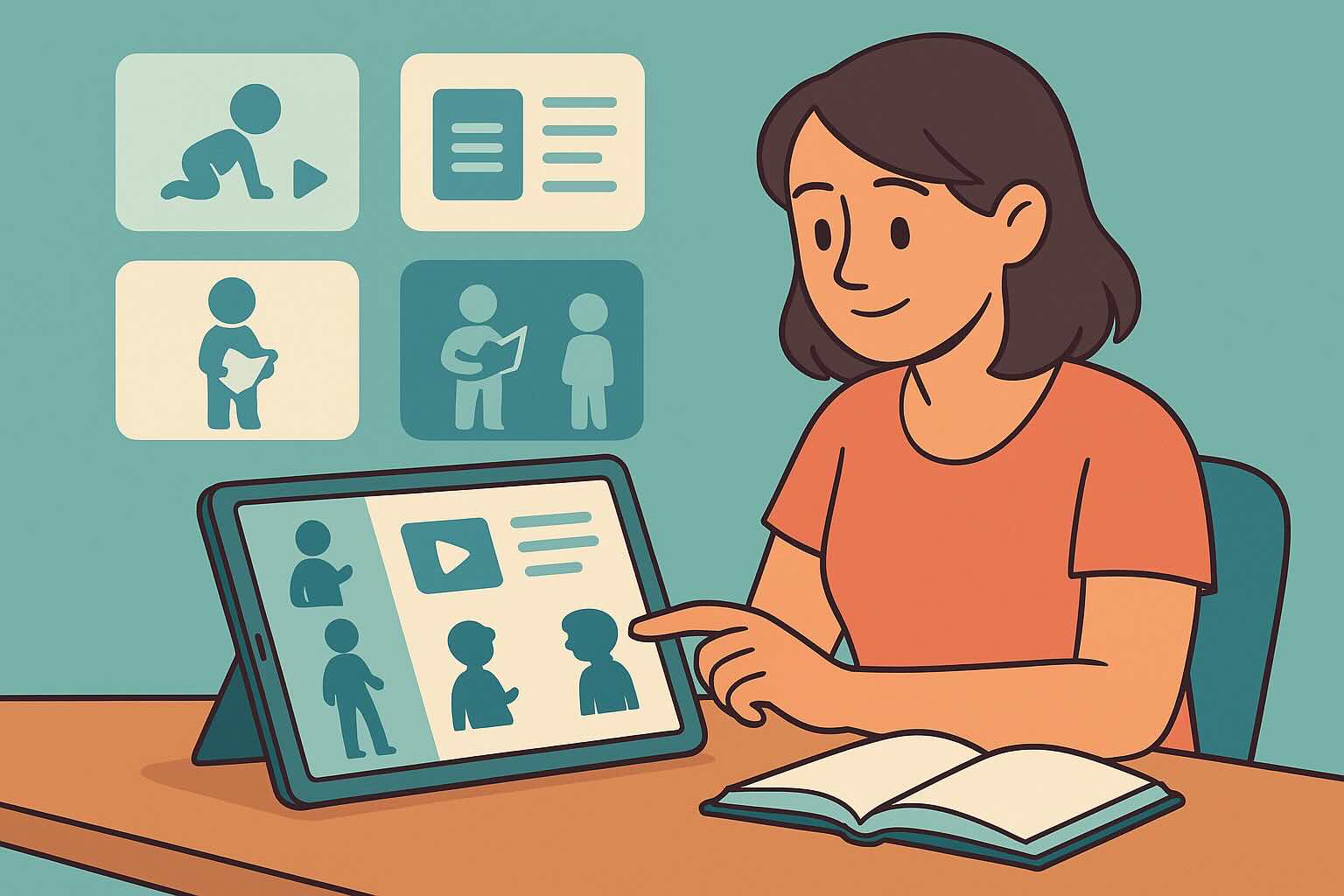
Connection Before Correction Toolkit
Daily practices and scripts to build strong parent-child relationships that make behavior guidance more effective.
Frequently Asked Questions
Need personalized support?
RootWise's AI coach can provide tailored strategies for your specific situation, available 24/7 when you need it most.
Learn More About AI Coaching →